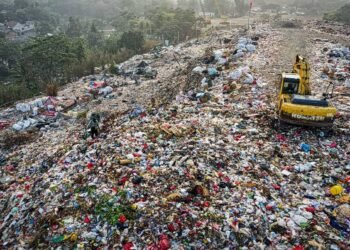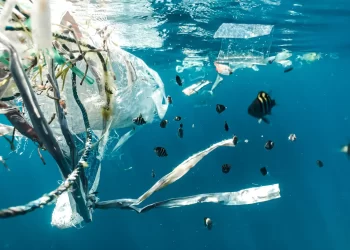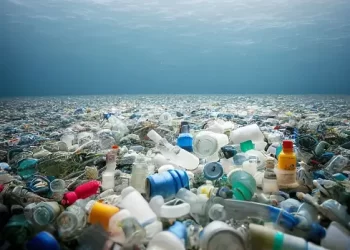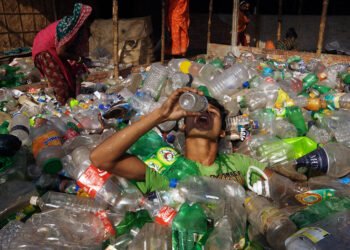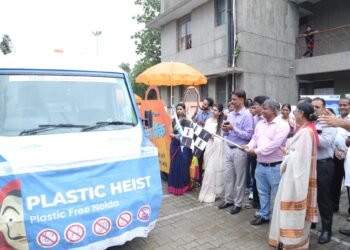New Delhi – Compliance regarding Extended Producers Responsibility (EPR) was a herculean task in 2016, Atul Sud, Director – Legal, Regulatory and Corporate Affairs at Paerfetti Van Melle said at an event on plastic waste management in New Delhi on Tuesday (27 Aug).
Now much ground has been covered by the consortium and they have managed to secure confidence of the industry and statuary authorities in so far showcasing their commitment in undertaking EPR on pan India basis.
Sud said that scrutiny, onground check and follow-up was required on the part of the company and Perfetti was doing it. Its a long journey and will take time, he said.
Priyank Arya, Corporate Head FHS at Dabur India pointed out how selection of PROs was a problem but the company had the guidelines to select them.
The Plastic Waste Dialogue is hosted in collaboration with Go Native, United Way India Plog Run and knowledge partner We Care, led by Dr. Atul Sud, Director, Perfetti Van Melle India.
For Dabur, adherence to rules was sacrosanct, and it ensured compliance of EPR through one-to-one interactions during its field visits.
Meanwhile, Juhi Gupta, head sustainability at Pepsico India a national level framework was required on EPR. She said that the company was keeping a close watch on the government regulations.
Garima Singh, Head government affairs, Mondelez said that it was important to bring rag pickers up the value chain. She said that Mondelez wanted to help the rag pickers.
Sud also suggested for a compliance certificate by the government to the corporate sector so that it helped companies and also gave then a peace of mind
Problems related to waste collection was also raised by all in the panel.
Singh suggested for PPP model with the local government bodies.
Gupta also stressed on incentivising plastic waste management and how they could be used to uplift the living conditions of rag pickers
India CSR, the largest network on corporate social responsibility and sustainability on Tuesday (27 Aug) organised a dialogue on responsible plastic uses and waste mitigation in New Delhi.
The founder said that Pro India has collaborated with American Express for a corporate social responsibility initiative where it is educating 25,000 school children from 50 schools in Delhi and Mumbai to sensitise them about plastuc waste.
Under the initiative, the children are told to bring waste plastic from their homes to schools for six months which is then sent for recycling.
Another speaker Sujoy Jha, CEO of Haribhai – a waste management company raised the issue of how difficult it was for the industry to get plastic waste.
He explained how putting up a plastic waste management plant was an expensive proposition.
He said the industry needed strong linkages with municipalities and people also needs to be sensitised about waste segregation.
“India CSR has not only been a publication which writes about sustainability and corporate social responsibility, but we have been a great proponent of environmental sustainability and it is for the very reason we have organised a dialogue which will motivate us all to move at least one step forward from where we are, at this point-in-time,” Rusen Kumar said.
“Though our on-year consumption of plastic is growing and is likely to grow further, the good news is that we are recycling more plastic than we were ever recycling. Infact, the overall waste management industry in India is likely to attain a worth of USD 13.6 billion by 2025, growing at a compound annual growth rate of 7.2%.,” he said.
“The government have to enable an environment where sustainable measures could be taken by way of legislations and strict enforcement, corporate sector and NGOs will have to create solutions while the public at large has to take it upon itself to practice at individual levels,” he further added.
Though we need to do much more on this, I can say this with some authority that many corporate houses especially the ones present here have started taking steps towards responsible consumption and plastic waste mitigation.
Chief Guest CK Mishra, Secretary, MoEFCC, Government of India delivered key note address. Manish Michael, CEO, United Way of India and Sanjay Khajuria , Director, Corporate Affairs, Nestlé India also addressed the occasion.
The Dialogue involved some of the most reputable and competent national and world-renowned speakers from industries, CSR, non-profit organizations, international agencies, academia, and research organisations.
The day-long affair saw some of the most powerful voices in government, industry, non-governmental organisations, international agencies, academia, and research organisations.
India’s annual plastic consumption at 16.5 million tn is expected to cross 20 million tn by 2020 according to a report.
Over 80% of the total plastic produced in India is discarded which ends up filling landfills, choking drains and eventually flowing in rivers and seas where it is ingested by marine animals.
It leaches into soil and water, contaminating the natural environment with poisonous dioxins.
Effective management of plastic waste therefore is crucial to do away with environmental hazard caused by plastics.
As the dialogue progresses, a dance performance by Delhi street children on plastic use and waste mitigation has been displayed. The performance is choreographed by a Delhi-based not-for-profit –Flying Feet.
There is also an exhibition on cartoons on plastics by Cartoonist and Editor of Cartoon Watch Triambak Sharma.



